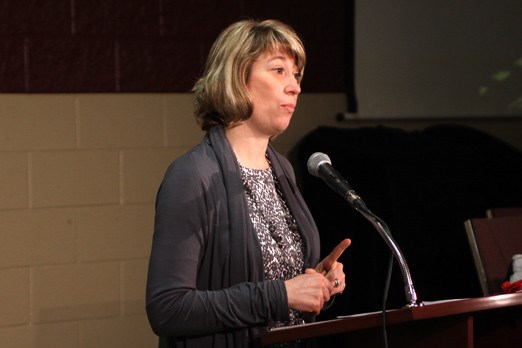The chief of Fort William First Nations said a summit on Aboriginal child welfare is a step in the right direction, but there’s a lot of work still to be done to protect children.
Peter Collins said the two-day summit held at Fort William First Nation – a meeting of more than 200 delegates from across the province – shows a commitment from frontline workers to improve the quality of life for First Nations children. One important way to make sure that happens is to repatriate First Nations children in non-Aboriginal foster care back into First Nations communities.
Collins said he has even gone to Toronto to stop a child from Fort William First Nation form being adopted.
"(It’s about) making sure we bring them back into our community where they rightfully belong," said Collins. "I went there and we now have that kid back in this community. It’s nice having our kids back, we hate losing them to the system."
That process of keeping children in communities, called customary care, is an important part of the overhaul to Ontario’s Aboriginal child welfare strategy said provincial Minister of Child and Youth Services Laurel Broten.
"How do we make sure that we take the steps to connect them to their past and to a hopeful future," Broten said. "Not to put aboriginal youth into foster homes might be an outcome you talk about."
Broten said the conference led to some amazing discussions about challenging issues. Those issues will now be tackled in a report of recommendations by Aboriginal Advisor John Beaucage. Broten said the report will focus on short, medium and long-term strategies to improve the quality of life for First Nations children in the system.
Historically the focus has been solely on child protection in child services.
While that is still important, Broten said reconnecting them with their communities, improving education and finding permanent homes for children are just a few of the strategies coming out of the first-ever summit that will also help.
"At its heart, it’s really about finding a pathway forward to better outcomes for kids," Broten said.
Collins said the problem with removing First Nation children from their communities is a loss of culture, society and language. Even living in an urban environment, like Collins did, can lead to a loss of language he said.
"It’s tough to go into meetings where they’re talking in our native language and not being able to understand what they’re talking about. It’s very frustrating," said Collins.
Sign in or register
- Messages
- Post a Listing
- Your Listings
- Your Profile
- Your Subscriptions
- Your Likes
- Your Business
- Support Local News
- Payment History
Registered Users
Already have an account?
New Users
Create a free account.
